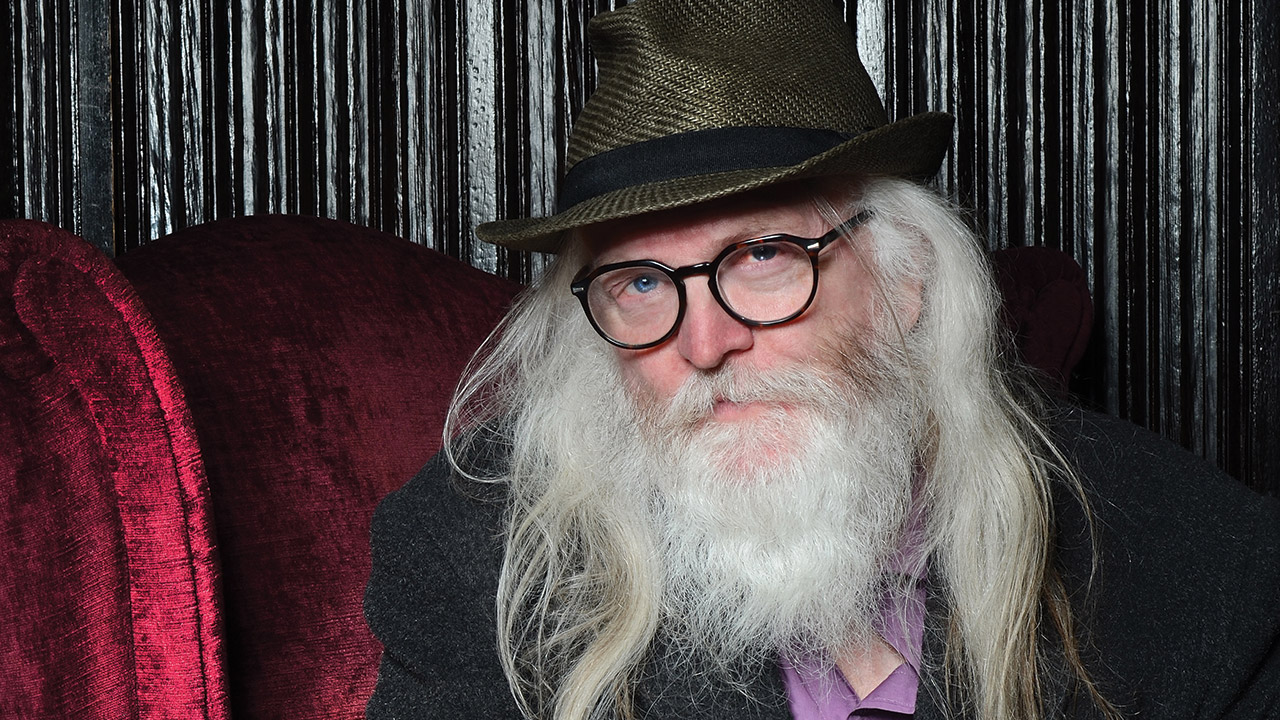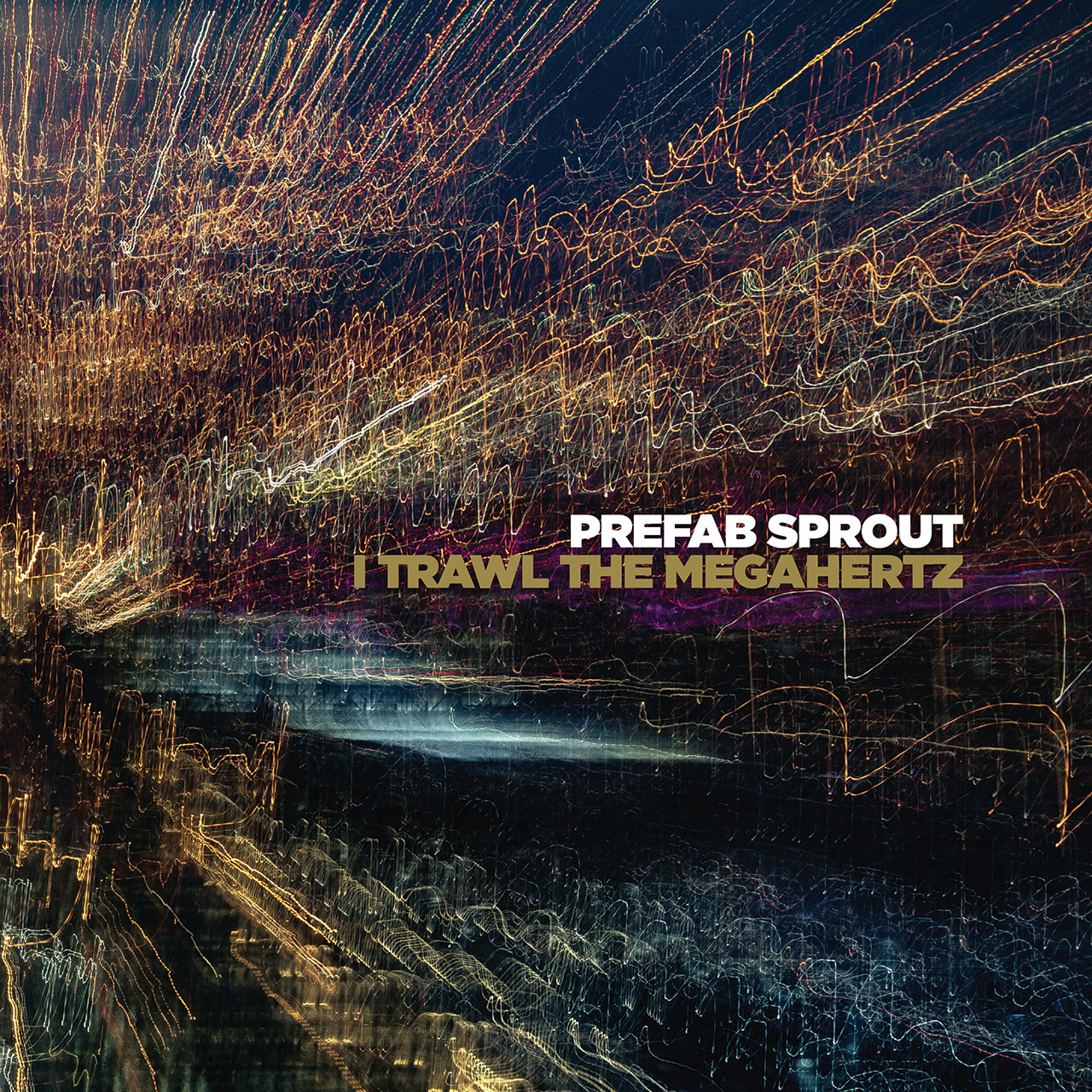Paddy McAloon on prog rock and trawling the megahertz
Prefab Sprout were already popular with prog fans, but with his reissued I Trawl The Megahertz, Paddy McAloon finds himself drifting in a much proggier world

Select the newsletters you’d like to receive. Then, add your email to sign up.
You are now subscribed
Your newsletter sign-up was successful
Want to add more newsletters?

Every Friday
Louder
Louder’s weekly newsletter is jam-packed with the team’s personal highlights from the last seven days, including features, breaking news, reviews and tons of juicy exclusives from the world of alternative music.

Every Friday
Classic Rock
The Classic Rock newsletter is an essential read for the discerning rock fan. Every week we bring you the news, reviews and the very best features and interviews from our extensive archive. Written by rock fans for rock fans.

Every Friday
Metal Hammer
For the last four decades Metal Hammer has been the world’s greatest metal magazine. Created by metalheads for metalheads, ‘Hammer takes you behind the scenes, closer to the action, and nearer to the bands that you love the most.

Every Friday
Prog
The Prog newsletter brings you the very best of Prog Magazine and our website, every Friday. We'll deliver you the very latest news from the Prog universe, informative features and archive material from Prog’s impressive vault.
“My relationship with prog is a complex thing, which has to do with my feelings about the 70s,” muses Paddy McAloon. “That period was very, very interesting. I reject the whole typical BBC documentary cliché that it was a wizard in a cape playing whizzy synthesisers. There was much more – you could go along and see something like Peter Gabriel and Genesis, which was highly theatrical. That in itself was terribly intriguing. I’m a big believer in what they call guilty pleasures, though I think that’s a silly phrase. Okay, some people mock that era, or genre, for other reasons – I get that, yes, sure, it sometimes went too far. But there is something there which… shows a purity of intention. And I find that admirable. They were young people, remember. Just like the Beatles, when young, were trying to do their own thing. Even Genesis themselves put it down now – ‘Oh, we didn’t have girlfriends so we wrote about mythological characters.’ Yes but, you know, anyone can write about their girlfriends. It’s fascinating to see what they did there.”
With his snowy-white beard and long hair, McAloon has something of the wizard about himself. No cape, sure, but if your idea of Prefab Sprout has them frozen in the 80s as a swooning indie pop outfit circa When Love Breaks Down, you’re missing out. His body of work has taken a variety of twists and turns, and as a writer/composer his ambition has ranged from minimalism to the grandiose.
His recently rereleased album I Trawl The Megahertz is a strange, seductive, often surreal beauty.

McAloon doesn’t often do interviews but when he does he loves talking about all manner of music, not to mention books, art, and his pleasure at being “a flâneur” in his North East hometown. He has written about both of the big subjects – girlfriends and mythological characters – since Prefab Sprout self-released their unassumingly titled debut single Lions In My Own Garden (Exit Someone) in 1982. It’s been a long, sometimes mysterious trip since. Chuckling at the notion that he’s a recluse, he confides that he’s had serious health issues. Right now however, talking in a West London hotel, he’s full of vigour and energetic of thought, stroking that beard and delighted to discuss his pet project. Originally a 2003 solo album, this year I Trawl The Megahertz was reissued under the Sprout name, for which it was back then deemed too weird. It’s an extraordinary, moving work, labelled by some as “contemporary classical” or ambient chamber art pop. In truth it’s a sheer one-off, a citizen of no genre, and while some might argue that Prefab Sprout are as prog as water is dry, its innovative ideas, curious experimentation and elevated ideas are clearly created by the mind of a musical magician and maverick.
“So I’m interested in prog from that view: how did it come to be a guilty pleasure? I remember how I was as a kid, and that feeds into the notion of I Trawl The Megahertz. In a sense you are the same person who listened to Radio 1 under the bedclothes at 10pm during the 70s. It wasn’t always John Peel; it was whoever it was, and all that music was brand new and was strange. Often it was coming from Germany or France or Italy. And I’d get fired up by all of it. I’d react: oh, this is what people are doing, what people can do. Even just seeing a photo of Tangerine Dream at Coventry Cathedral – I couldn’t aspire to that, I just had a little guitar and knew a few chords, but it made me think: music isn’t just cheesecloth shirts and isn’t just what you’re generally shown. Then Bowie came along, and he saw the whole gamut: the musical breadth and the avant-garde ideas. If you’re able to cross-pollinate like he did… well, he was a huge influence on me.”

Prefab Sprout instantly stood out for more than their wilfully perverse name. They were poetic, melancholy and rather adept at a good tune. The albums Swoon and the Thomas Dolby-produced Steve McQueen drew comparisons to Gershwin and Cole Porter for their exquisite songcraft. 1988’s From Langley Park To Memphis, in part a thesis on American pop culture, yielded their biggest hit, The King Of Rock’n’Roll, as well as the song people generally assume was their biggest hit but in fact stalled outside the Top 40, Cars And Girls. The former was a wry tale of a one-hit wonder. The ill-informed, seeing only highlights reels, might tag the Sprout as almost that.
Yet this is where it got even more interesting. Subsequent releases began to leap between genres; restless, versatile. 1990’s Jordan: The Comeback was a 19-song attempt to address pretty much the history of music, and if its themes regarding celebrity, religion, Elvis and Jesse James and a guest appearance by Jenny Agutter qualify it as a concept album, so be it. Andromeda Heights (1997) was more reined in but rich in romance. There have been excursions into country, folk and even a dash of disco (on 2009’s Let’s Change The World With Music, which also name-checked Mozart). 2013’s Crimson/Red returned to his base camp of deft, articulate songs. Along this unconventional route there emerged the unique I Trawl…, which for 16 years has simmered as a cult legend but now is getting the wider love it deserves.

In a very real way, 61-year-old McAloon’s health troubles played a part in its peculiar writing and production process. Around the turn of the century he suffered detached retinas, rendering him almost blind for some time. His eyes have since partially improved, but he struggles with Ménière’s Disease (“which slows me down”) and tinnitus, both of which impair his ability and appetite to record. Back then, housebound, he became by necessity “a listener”, taking solace in radio, in chat shows and documentaries. He’d record snippets, edit monologues or sentences which struck him as significant. He’d then sprinkle these – samples, or cut-ups, of a kind – over the instrumental foundation he’d created on his computer, its orchestrated score inspired by Ravel and Debussy. Co-producer Calum Malcolm and composer David McGuinness helped him transform this into “real” orchestral music. Added spoken word came from Yvonne Connors, who in an abstract, allusive way narrates an enigmatic woman’s thoughts. The net result attains a universal appeal, with its phrases and strings a powerful redefinition of poignancy.
Sign up below to get the latest from Prog, plus exclusive special offers, direct to your inbox!
“I did bring my lyrical attention to those ‘found’ words though, and I wrote a lot more of them myself than I used to admit. Because it’s about the tone of the voice. The rhythm of it. As she says something like ‘Your daddy loves you’, she’s… from another world. I found it all inspiring. At one point I’d put so many words on it that I thought, ‘You’ve got to give people a break!’ You can’t give them just another slice of words, words, words. It’s a record which should leave you with your own thoughts. I thought of Bowie’s Low, and of Miles Davis records – his attitude of not finishing phrases. So you’re listening to him, but having your own thoughts. That’s stayed with me, over years. I read interviews with Miles’ musicians: he’d say – come in late, and don’t finish it off. There’s something interesting about leaving gaps.”
Paddy is a charming, friendly conversationalist, open to discussing all and any ideas about this rarefied album, though when you boil it all down, he muses, “I was trying to make the record that I would have liked to have heard when I was ill.” He was, at the time, both bored and shocked by having to move so carefully (to protect his eyes) and to lie around a lot. “When I got well enough, that’s what came out. First the instrumental; that odd-shaped loop. Then I got attracted to this or that sentence… and it just kind of floats. I’ve always liked the notion of collage, whether it’s Picasso or TS Eliot. I wasn’t a big student of it, but I was fascinated by that different kind of poetry. For me, the avant-garde and the popular can run side by side, absolutely. The possibilities are brilliant.”
He has “boxes and boxes” of stuff part-recorded yet unreleased, although he sees these demos as the “screenplay” and records as the “film”. He says he gets full satisfaction from creating the former. They are, in his mind, completed. He wishes he hadn’t stressed so much during Prefab Sprout’s pop chart years about the pressure there was then to write something that Radio 1 would play. “It cast a long shadow. It was like some world you were meant to break into. But then I’d go home and I wouldn’t write what I thought would please a DJ. I’d write a Jordan: The Comeback. And yes I did retreat into my house a bit later. But when my health’s not too intense, when I’m not falling over with the vertigo and my balance, I get out in Newcastle and wander around: people say hello. And when I can get in my home studio I get something new going. It’s ongoing, but… slowly.”
Not a recluse, then, but he makes a telling observation about Syd Barrett. “I remember reading one of Floyd saying something like, ‘As soon as Syd saw how
prosaic being a rock star was, he kind of lost interest.’ And I thought, ‘Yeah, there’s truth in that.’ How could he possibly find being in the back of a van with the other lads interesting, when his head was out there? Because – you’re working all the time in your head.”
McAloon tends to shy away from the compliments that often cite him as one of Britain’s most underrated musical figures: “Maybe to the extreme; I get a bit embarrassed at overt praise.” Wondering about where you fit in to musical trends or traits, as he confesses he used to back in the day, is “nonsense, a daft and foolish thing to think about”, because “that washes away”. If it’s good, he says, “That’s usually all it has to be. It’s all good if it’s good.” While it’s a great deal more than good, I Trawl The Megahertz is a challenging, unconventional record, but once converted you’ll return to it with ever-increasing frequency.
This article originally appeared in issue 98 of Prog Magazine.
Chris Roberts has written about music, films, and art for innumerable outlets. His new book The Velvet Underground is out April 4. He has also published books on Lou Reed, Elton John, the Gothic arts, Talk Talk, Kate Moss, Scarlett Johansson, Abba, Tom Jones and others. Among his interviewees over the years have been David Bowie, Iggy Pop, Patti Smith, Debbie Harry, Bryan Ferry, Al Green, Tom Waits & Lou Reed. Born in North Wales, he lives in London.

